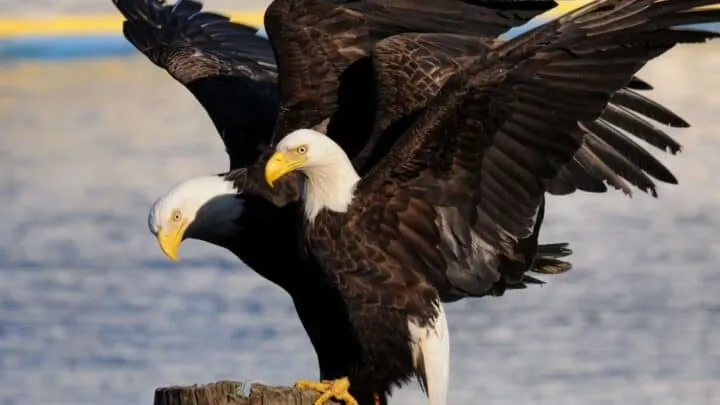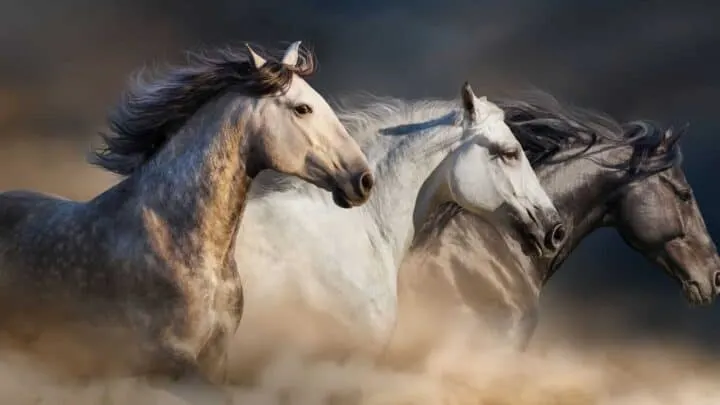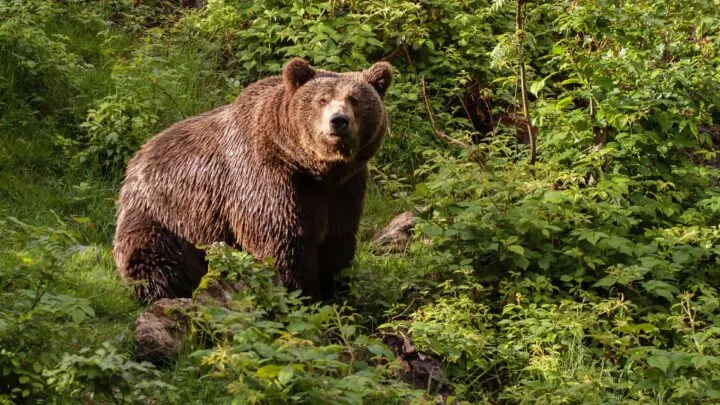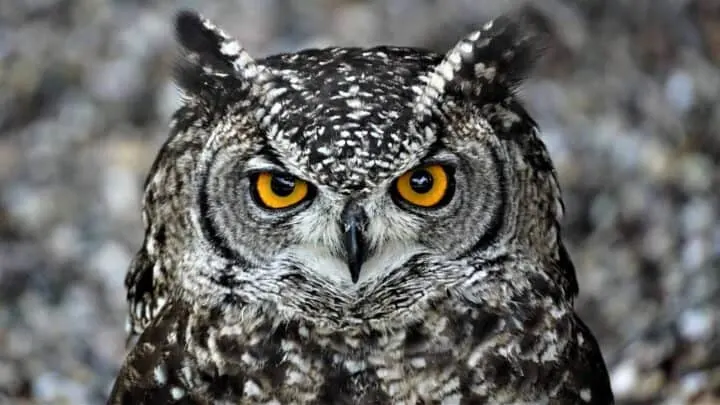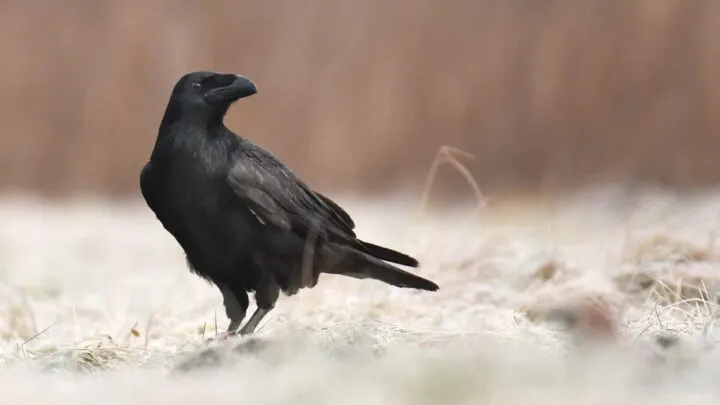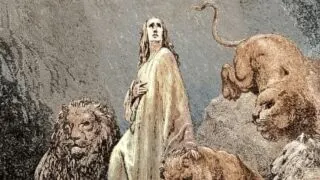In this article, we will continue our study of animals and look at deer in the Bible. We will investigate references, symbolism, and more. So, grab your Bible, and let’s do this…
The Bible is full of symbolism; many people don’t realize how much. Much of the Bible can be taken literally, but even the literal verses often have a symbolic meaning when studying them closely.
These symbols are often hidden in the secret meanings of numbers, colors, and animals, and they usually contain strong prophetic references and messages from God that we can learn from.
Not in some mystical way; remember that the gospel is simple enough for children to understand (Matthew 11:25). But understanding these meanings can teach us so much and helps us understand prophecies with scripture.
One of the animals mentioned a few times in the Bible is the deer, but it is often overlooked. Deers are mentioned as both “deer” and “doe” or “hind” in some translations.
So, what does a deer mean in the Bible, and what can we learn from the scriptures that mention it?
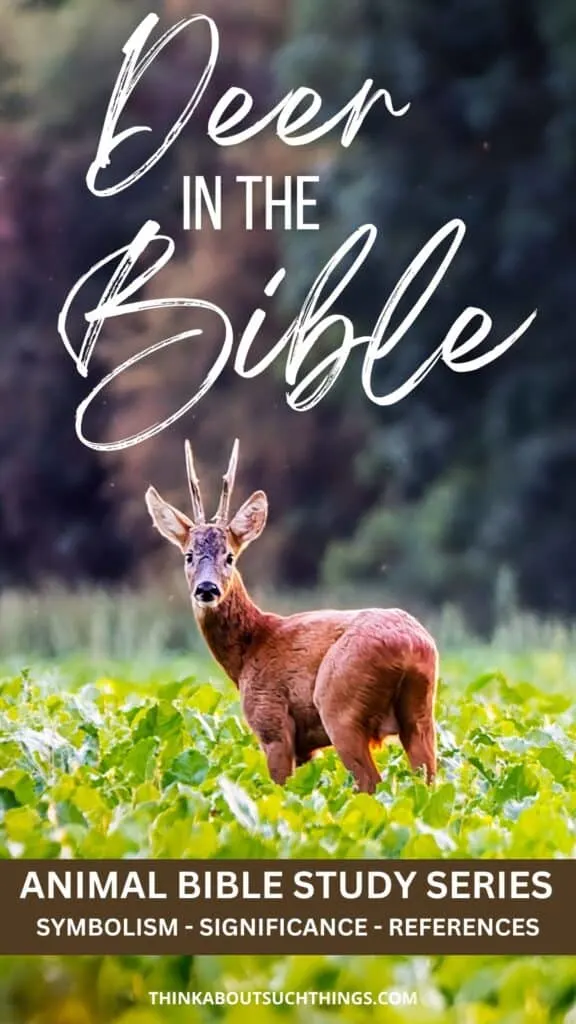
What Does The Bible Say About Deer?
A key element in Bible interpretation is called the law of first mention. It means that you can often look at the context of the first time a word is mentioned in the Bible and apply that context to every other occurrence of that word.
It doesn’t always apply but often adds an interesting perspective to other scriptures.
The Bible first mentions deer in some form in Genesis 49:21. It’s when Jacob (Israel) is blessing his sons before his death. He says,
“Naphtali is a doe let loose that bears beautiful fawns.”
This scripture is why the tribe of Naphtali probably had a deer on its banner. However, the words are a bit obscure.
For example, the King James Version translates it as “Naphtali is a hind let loose: he giveth goodly words.”
Side note: A hind is a female deer usually associated with a red deer.
Easton’s Bible Dictionary
Hind: Heb. ʾayalah (2 Sam. 22:34; Ps. 18:33, etc.) and ʾayeleth (Ps. 22, title), the female of the hart or stag. It is referred to as an emblem of activity (Gen. 49:21), gentleness (Prov. 5:19), feminine modesty (Cant. 2:7; 3:5), earnest longing (Ps. 42:1), timidity (Ps. 29:9). In the title of Ps. 22, the word probably refers to some tune bearing that name.
Scholars are uncertain which translation is correct since the same words are often used to utter both phrases.
However, what is clear is that Naphtali is a “doe let loose,” and later scriptures confirm that. The Bible describes the tribe as free-spirited mountain-dwellers in verses like Judges 5:18 and Joshua 19:32-39.
That definitely sounds like the character of a doe that has been set free, and it sets the tone for every other occurrence or mention of deer in the Bible.
Other Occurrences Of Deer In The Bible
Keeping the first mention of a deer in mind, let’s continue through the Bible and look at the other scriptures that mention them. Interestingly, the New Testament contains no direct reference to a deer or a doe; it’s all in the Old Testament.
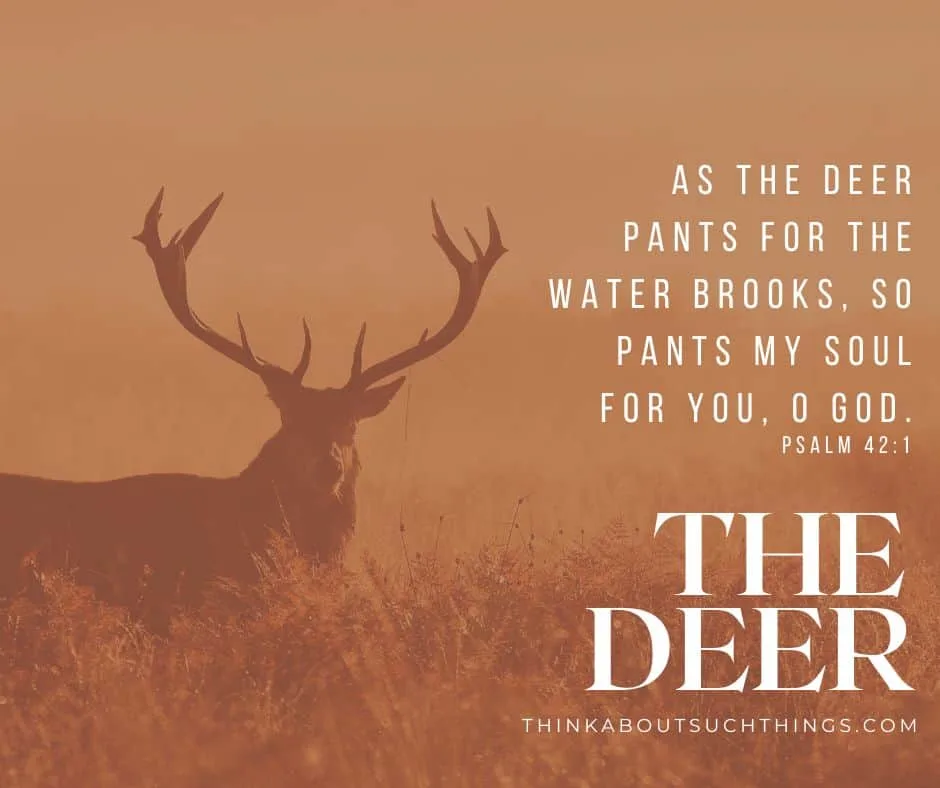
Deuteronomy
The book of Deuteronomy (literally the “second law”) refers to deer four times. This book mentions these animals the most, and always within the context of which animals are clean and safe for the Israelites to consume.
From verses like Deuteronomy 12:15, 12:22, 14:5, and 15:22, we can see that God sees deer as clean animals because they have cloven hooves and chew the cud, and the Israelites could eat them without becoming unclean.
Taking that within the context of Genesis 49, the Bible considered deer as game animals that were safe to hunt and consume.
2 Samuel 22:34 And Psalm 18:33
This is an interesting one to look at from a historical perspective since we can read Psalm 18, then read about how and why David wrote it by looking at 2 Samuel.
We can see from chapter 21 that David and his men went to war with the Philistines but that David grew weary (verse 15). The Philistine army had four strong men who were descendants of the giants, one of whom tried to kill David.
However, David had built up a group of mighty men around them. They withdrew David from the battle and defeated the Philistines and the four strong men.
It’s in answer to this victory that David wrote Psalm 18 as a song of deliverance, and in this Psalm, he says that God
“made my feet as the feet of a deer and set me secure on the heights.”
He tells us how God set him free (similar to the Naphtali reference in Genesis 49) and made him sturdy in a high place, away from those who wanted to harm him.
We can see that deer are tied to three interpretations: being clean (holy), free, and safe.
Psalm 42:1
Psalm 42:1 is perhaps the most famous scripture about deer, especially since it was turned into a popular hymn by Marty Nystrom in 1984. The verse says,
“As a deer pants for flowing streams, so pants my soul for you, O God.”
Usually this verse is used to focus on hunger and thirst for more of God. But if you look into this more it’s much more deep.
This Psalm speaks of how the writer longed for deliverance from a situation. Whoever wrote this Psalm was enduring trouble and praying for salvation. I talk more about this in Psalm 42:1 – The Meaning Behind As the Deer Pants.
We mentioned earlier how one Biblical meaning of a deer is freedom. When would a deer be thirsty and long for water?
When they cannot get to water; for example, when they are not free. The Psalmist was referring to his longing for freedom from his circumstances and the oppression he was facing.
Isaiah 35:6
Isaiah is a book full of hopelessness and anguish. It contains prophecies of the destruction of Israel and Judah and how God’s people would be carried away in judgment.
But it’s also a book with hope – it prophesies Jesus so clearly that some scholars (with little faith, apparently) have speculated that these portions were written (or edited) after many of the New Testament books.
One such chapter is Isaiah 35. Verse 6 says,
“Then shall the lame leap like a deer, and the tongue of the mute sing for joy. For waters break forth in the wilderness, and streams in the desert…”
We know that Jesus literally made the lame walk and the mute sing. He healed every disease (Matthew 4:23).
But Jesus’ primary purpose was to deliver His people (us, the believers, not just Israel) and set us free.
The use of the deer in this context, which clearly refers to Jesus, is not a coincidence. When we look at the meanings we’ve seen for deer so far, they all tie together in one Person: Jesus Christ.
- Jesus brought us perfect freedom. We have been let loose (Genesis 49), and the ties that bound us are no more.
- We have been made holy. There is nothing unclean in us when we are in Christ (Deuteronomy).
- We have been delivered (Psalm 18). No matter what happens to us in this world, God protects us, and we know that it will end in His victory over our enemies.
- We no longer have to thirst for God (Psalm 42). We are seated in heavenly places in Christ (Ephesians 2:6), we are in Christ, and Christ is in us through His Holy Spirit. We are living in the time of Emmanuel – God with us.
Symbolic Meaning Of Deer In The Bible
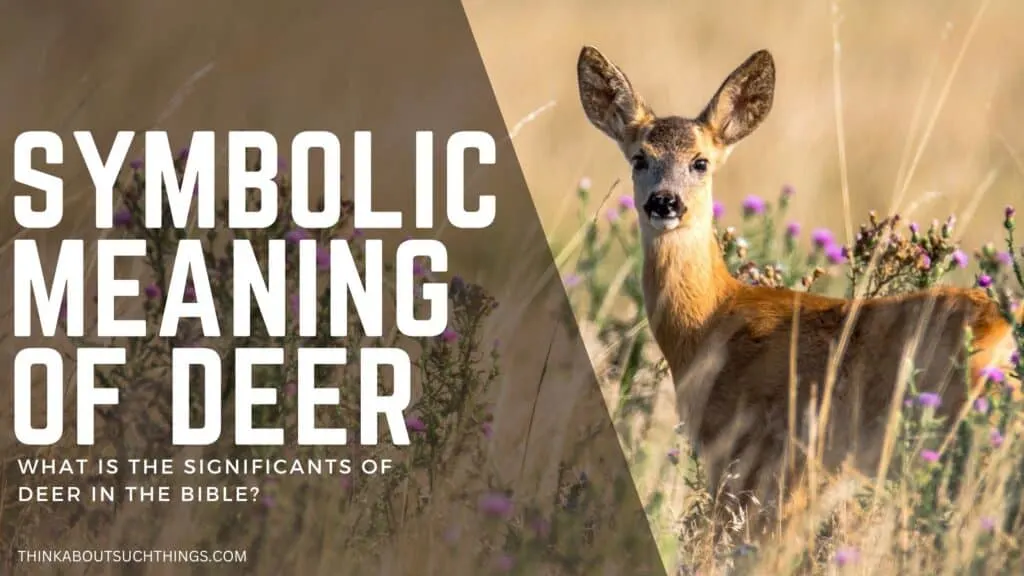
To summarize and bring some more significance this what a deer means in the Bible:
- Deliverance: In Psalm 42:1, the psalmist compares his thirst for God to that of a deer panting for water. This symbolizes the deep desire for God to rescue him.
- Swift and graceful movement: Deer are known for their agility and swiftness, and they can navigate difficult terrain with ease. This is used as a metaphor in several passages, including Habakkuk 3:19, where the prophet says that God “makes [his] feet like the feet of a deer,” enabling him to move quickly and safely through life’s challenges.
- Vulnerability and weakness: In Lamentations 1:6, Jerusalem is described as being like a hunted deer, vulnerable and weak in the face of its enemies. This symbolizes the helplessness of the city and its people, who have been defeated and taken captive.
- Holy, Free, and Safe: We see how David uses deer to express how he felt when God delivered him.
- Joy and celebration: In Song of Solomon 2:9, the lover compares his beloved to a young doe, and in 8:14, the woman invites her lover to come away with her to the mountains, where they can watch the deer and enjoy their beauty. These passages use the deer as a symbol of joy, beauty, and celebration.
- Jesus: In Isaiah 35:6 we see how the lame shall leap like the deer. Jesus brought us healing and joy.
Salvation and deliverance: In Isaiah 35:6, the prophet describes how the Lord will heal the blind, the lame, and the mute, and says that “the lame will leap like a deer.” This symbolizes the restoration and deliverance that God will bring to his people.
Whenever you see a deer in the Bible, you can find the context of freedom, holiness, and safety. God bought all three aspects for us through Jesus Christ, so we don’t have to earn any of them.
When we are in Christ, we have those aspects, and there’s no need to thirst after them. We can long for God’s deliverance from a situation, but we can always know that God has not abandoned us.
Animals In The Bible Series
Are you ready to learn more about animals? I have been working on this series of different animals in the Bible. And I hope you enjoy it and learn from them.
Animals In The Bible

Melissa is a passionate minister, speaker and an ongoing learner of the Bible. She has been involved in church and vocational ministry for over 18 years. And is the founder of Think About Such Things. She has the heart to equip the saints by helping them get into the Word of God and fall more in love with Jesus. She also enjoys family, cooking, and reading.
She has spoken in churches in California, Oregon, Texas, and Mexico and has been featured in Guidepost Magazine and All Recipes Magazine. Read More…


